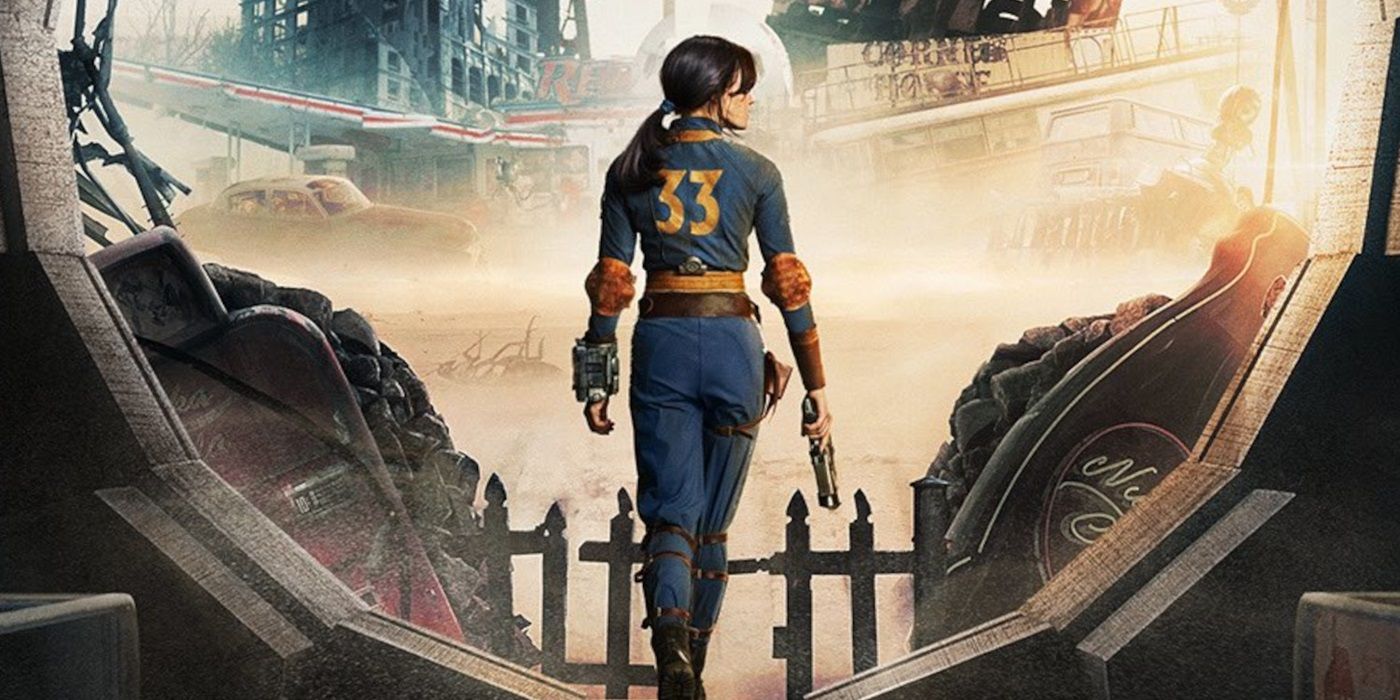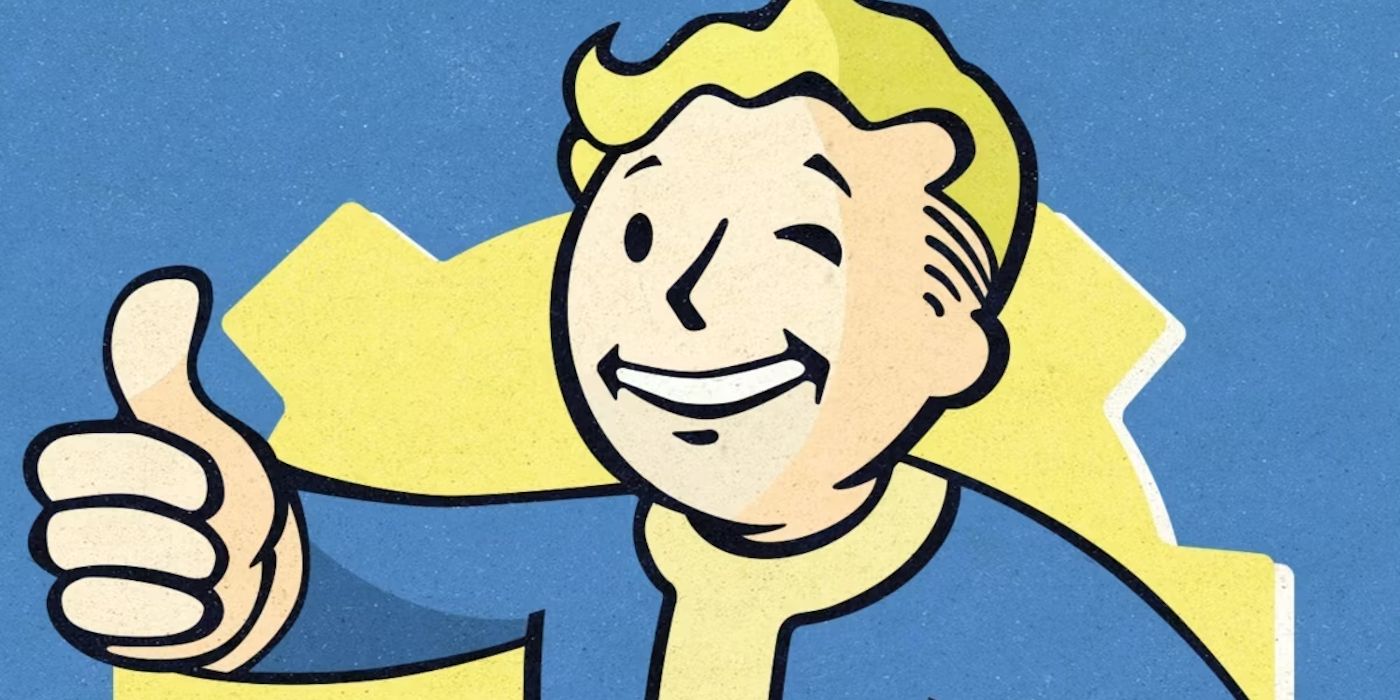When it was released in 1997, Fallout was met with widespread critical acclaim, with many deeming it the best role-playing video game up to that point. In the more than two decades since its debut, the franchise that's set in a post-apocalyptic world that utilizes 1950s art and imagery, has expanded to include four games in the main series, and seven spin-offs across various platforms. Over 46 million copies have been sold to date, with Fallout 3 and Fallout 4 taking home Game of the Year awards from different organizations.
For years, fans of the massively successful Fallout franchise have been let down on a number of occasions when it came to adapting the game into a feature film, with projects being announced and later canceled, but they can now turn their attention to the small screen, as Prime Video is finally bringing Fallout to life by way of a live-action series that is set to debut on April 12, 2024.
First announced in July 2020, details were scarce in the beginning, but it was later revealed by Todd Howard, director and executive producer at Bethesda Game Studios, that the Fallout TV series would be based on a wholly original story rather than showcasing an adaptation of an already existing video game. We've seen other shows and films in recent years try something similar to mixed results, such as Halo on Paramount+, so the question is: will this original concept be a good or bad thing for the Fallout series?
Update December 6, 2023: This article has been updated to include fresh information regarding the new Fallout TV series on Prime Video, complete with the teaser trailer and images from the show.
The Fallout World Can Tell Many Stories
Having an original story isn't necessarily a bad idea. After all, the Fallout series has told various stories set across its various worlds. In the mainline games alone, the player does everything from taking over a hostile Washington D.C. to saving the world from being turned into ravenous Super Mutants in Southern California. The multitude of side quests available also takes the player on all sorts of adventures, with particularly memorable ones including a dispute between a pair of "superheroes," uncovering the mystery behind blue-star bottle caps, or even navigating a haunted casino under the threat of a neck-attached bomb collar.
From a writing standpoint, the main quests in the mainline games weren't always the most compelling. It was primarily the experiences that the players made for themselves -- wandering off the beaten path, finding something they weren't supposed to find, getting suddenly killed by a rampaging Deathclaw -- that made the later entries in the Fallout series memorable. The world is prime material to explore in a series, and there's still so much the games haven't even touched.
Will the Series Still Feel Like Fallout?
The problem with straying far from the games is that it runs the risk of removing itself from what made Fallout so compelling. It's not just a post-apocalyptic world with horror-tinged '50s iconography; it's an entire alternate timeline with its own rules, technologies, cultures, and issues.
Recreational drug use is a common issue, reflected in both the frenzied raiders and the players should they choose to utilize them. Each faction in the series exists for an established purpose, and while later games in the series played fast and loose with their backstories and intentions, there's no real singular "good guy" in the original game's lore. The ramifications of nuclear power and Cold War paranoia being integrated into technologies we now take for granted every day present themselves through rampant radiation poisoning, brains and machinery becoming intertwined, and wildlife being horribly mutated into vicious monsters or unsightly livestock.
It's essential to understand what makes Fallout tick. For example, some have criticized the Halo series for not getting what made the games so compelling to players. Aside from straying significantly from what fans understood to be the series canon, even casual viewers noticed some issues: a lack of action from a series that was synonymous with it, a new character that split the series' focus, and a questionable romance plagued the season's eight episodes. Yes, it's officially an "alternate universe," but for some, it came off as an excuse to use an existing property for an unrelated story.
The Fallout series needs to be precisely that: a series based on Fallout. As long as it understands and applies the ideas and themes that loosely tie the games together, it should successfully appeal to both fans and newcomers alike. That means going beyond just throwing in power armor and Vault Boy posters in an otherwise irrelevant story.
Thankfully, it seems like Lisa Joy and Jonathan Nolan, developers of the Fallout TV series, are on the right track. Todd Howard at Bethesda didn’t want to interpret an already existing story, so when he met with Nolan and was pitched an entirely new plot set within the Fallout universe, he was pleasantly surprised, as a lot of other pitches he’d heard over the years did nothing more than rehash old stories. With the scripts carefully coinciding with already existing storylines within the game’s world, it looks as if all the pieces are in place to make the Fallout video games and the series coexist in a coherent way that will appeal to fans and casual viewers alike.
How Can We Set Our Expectations?
With the recent release of the Fallout teaser trailer, the reception has been mainly positive, but fans are still trepidatious regarding the new TV series, hoping it doesn’t go the way of Halo in some instances. Though Todd Howard, Lisa Joy, and Jonathan Nolan have had many conversations about the themes, imagery, humor, and level of violence in the series, which will be canon within the Fallout world, it’s important to temper expectations in situations like these, especially when considering it’s a brand-new story.
While Nolan has had success in the past, creating such shows as Person of Interest and Westworld, that doesn’t necessarily mean Fallout is going to be another home run. With fresh characters, fresh storylines that include the origins of the iconic Vault Boy image, and an entirely new villain in the form of Walton Goggins’ The Ghoul, there’s a danger of fans being unable to digest these new elements in a way that’s separate from the rose-tinted lenses they use to view the video games.
For an example of what a great Fallout live-action series could look like, look no further than the Fallout: Nuka Break web series. While the series is now defunct due to internal issues, the miniseries followed the adventures of three unlikely companions as they scoured the stretches of the Mojave Desert. Despite its status as a fan-made series, the work that went into replicating the games' props, setting, and motifs is staggering, with Nuka Break even being referenced in an official downloadable weapon for Fallout: New Vegas. It's also admittedly pretty funny. Spanning 17 entries across three seasons, it's well worth a watch for those who have played the games and want an idea of what the official Fallout series could be ahead of its 2024 release.
Fallout has some big footsteps to follow. After HBO's incredible The Last of Us and Peacock's rather enjoyable Twisted Metal, the expectations for a video game series are now at an all-time high. Fallout has a vast, rich universe to draw from with plenty of exciting stories to tell, and could launch an entire shared universe of stories for Prime Video that could rival HBO's Game of Thrones or Disney+'s Star Wars series. Hopefully, the series delivers on all of its potential.



